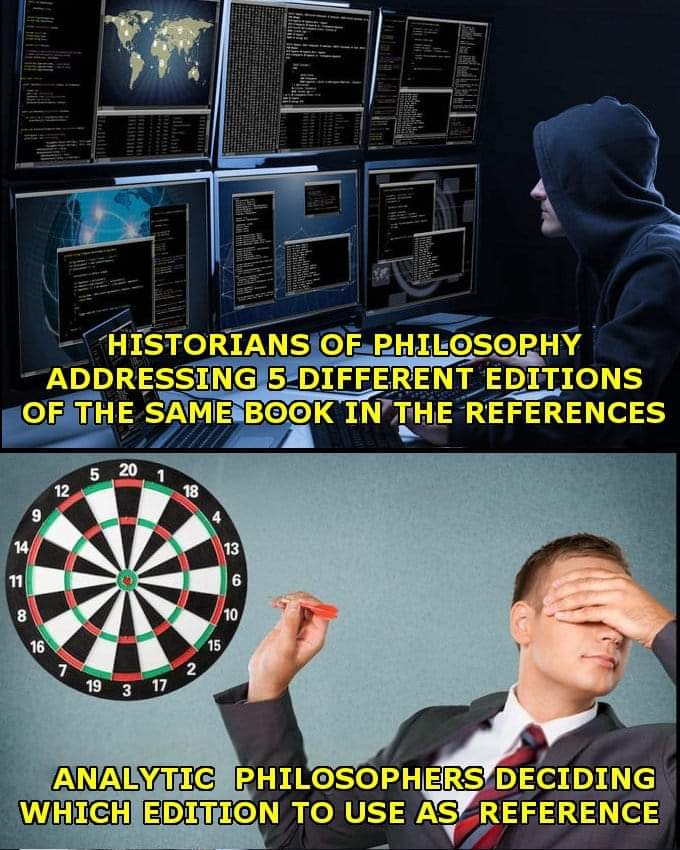Aristotle, Nicomachean Ethics
Posted: Mon, Oct 13, 2025

Reading Aristotle on his own terms vs. treating/translating him as a normative ethical theorist.
Aristotelian teleology
Telos: “End.”
- The telos of archery is hitting the target, and that of medicine living healthily.
- Telos is not the goal itself (i.e., the thing aimed at) but rather the agent’s aiming at/getting/hitting the goal (i.e., an activity).
- Telos does not imply a creator’s design, only what’s done for the sake of.
- Some contemporary moral philosophers use “teleological” to mean “non-deontological” (what we have called “axiological”); this really muddies the waters.
Aristotle’s point of departure: The actions we do exhibit an end-directed structure.
What do our actions aim at?
Our actions aim at some kind of good—getting hydrated, learning a new subject, making a living, experiencing pleasure, earning others’ respect, etc.
- We can be mistaken/confused, but we have to think that the things we do bring about some good such we do them in the first place.
For Aristotle, there is a hierarchy of telos.
- Some of these ends also serve as the ends of other ends; the latter are done for the sake of the former.
- A final end is an end not done for the sake of any other end.
Eudaimonia: “Happiness” or “flourishing.”
- Aristotle names our final end eudaimonia.
- Eudaimonia is not a state of mind/(felt) pleasure; indeed, pursuing pleasure leads us away from eudaimonia.
- Eudaimonia is not a thing (e.g., money) but an activity (i.e., our life going well).
Can we say more about what constitutes eudaimonia?
The function argument
The core argument happens in NE I.7, 1097b22–1098a18.
Ergon: “Function” or “work.”
- The ergon of a shoemaker is shoemaking, and that of a firefighter firefighting.
Aretê: “Virtue” or “excellence.”
-
Aretê enables us to function well.
- The ergon of a knife is cutting, and its aretê sharpness.
- For human beings like us: Wisdom, justice, bravery, honesty, etc.
-
Aretê is the mean between two vices—“excess” and “defect”.
- Bravery is the mean between cowardliness and recklessness.
- We might not have a word for the two extremes; language is orthogonal to the issue.
What is the ergon of the human being?
-
Being alive: Does not distinguish human beings from plants. -
Being nourished/growing: Same problem. -
Perceiving through the senses: Does not distinguish human beings from non-human animals. - “[A]n activity of soul in accordance with, or not without, rational principle.”
Eudaimonia is this “activity of soul in accordance with, or not without, rational principle” functioning well.
- This is equivalent to saying that eudaimonia is “an activity of soul in accordance with complete excellence [aretê]” (1102a5).
How does one become virtuous?
Not by philosophizing from the armchair!
- “[E]xcellences we get by first exercising them, as also happens in the case of the arts as well. For the things we have to learn before we can do, we learn by doing, e.g. men become builders by building and lyre-players by playing the lyre; so too we become just by doing just acts, temperate by doing temperate acts, brave by doing brave acts” (1103a26–b2).
- “But most people do not do these, but take refuge in theory and think they are being philosophers and will become good in this way, behaving somewhat like patients who listen attentively to their doctors, but do none of the things they are ordered to do” (1105b12–16).